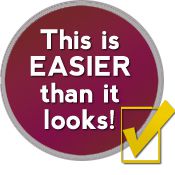
Like most business owners, more than likely at some point you have pondered the idea of franchising and now maybe thinking about it more seriously. The most common questions when thinking about franchising are: “why should I franchise my business, when is the right time to franchise, how to franchise and what are the steps?” You figure that franchising is a way to grow because it is considered a safer way for someone who is looking to start a business. Well you are right because franchising guarantees a proven business model, has oversight and is regulated to protect the person buying into your program (franchisee) and keeps you (the franchisor) honest. Whether you want to expand in just your state or all over the United States, franchising has been a method of growth for decades and could quench your thirst for growth. So let’s get into your questions.
Why Franchise My Business
Franchising provides a vehicle for growth into new markets, typically outpacing what can you can do on your own. Perhaps your business is a raving success because you have created a new way of doing something or making something, mastered efficiencies or maybe developed a highly sought-after piece of equipment or product where you control its distribution. By franchising your business, you can leverage someone else’s energy, talents and resources to get into markets beyond your reach. Moreover, you are playing a role in the success of other people by helping them get into a business they otherwise would not be able to do without your help. Bottom line is that franchising is a people business and really is the business of helping other people succeed in business. You are already teaching, training, coaching and mentoring your employees, franchising is do that on a bigger scale with entrepreneurs who are putting everything on the line to make your business a success for them. So why not do that on a larger scale and make money doing it (take a look at “Is Franchising Worth It“).
A Few Benefits of Franchising
One of the many benefits of franchising is that it frees you from the complexities of managing a larger corporate structure of regional and district managers and without being tied to more employees. By leveraging another person’s talent and financial resources you can expand your reach all without the need for extensive hiring or management hierarchies. This approach triggers quicker growth and distributes the risks and responsibilities of operating your business to that other person or group of other people who buy into your franchise program.
How about this, perhaps you are finding yourself helping other people who are asking for help to start their own business. Soon you realize that by providing help and sharing your wisdom you are inadvertently training your competition. Next thing you know you see knock-off businesses in your area attempting to do what you do and you think to yourself those sneaky bastards. Would have been a lot easier to have them to jump onto your program so you dominate the market together. You don’t get any thanks, loyalty, branding or anything out of it except that you were a nice person and you feel good about it. Franchising changes all of that because with franchising comes consistency, branding and if executed correctly loyalty.
Franchising Helps Avoid Three Big Headaches
Besides avoiding the liability that comes with just operating additional locations yourself, the most overlooked benefits to franchising is how you avoid additional taxation, mandated healthcare and unionization. Franchising alleviates these challenges that often accompany organic or company-owned business expansion.
Taxation burdens can become increasingly onerous as you continue grow your business organically. With each additional location there is an increase in revenue and your tax obligations escalate. Franchising, however, offers a strategic advantage in mitigating this burden. Keep in mind each franchise as an independent entity, the overall tax liability is distributed across your entire franchise network. This not only minimizes the tax exposure for you but also provides tax benefits to individual franchisees.
Healthcare mandates pose another significant challenge for expanding your business organically. The more you grow organically the more employees you have and businesses with fifty or more employees are obligated to provide healthcare coverage, a requirement that can impose substantial financial and administrative burden on you. By franchising, you can effectively circumvent these mandates. Since each franchise operates as an independent entity, the franchisor is not responsible for providing healthcare coverage to its employees. This decentralized structure allows franchisees to manage their own healthcare obligations while you avoid the complexities and costs associated with the Affordable Care Act.
The big one is unionization (take a look at this article about “The NLRB and Franchising“). Often overlooked but not forgotten, unionization presents yet another obstacle to organic growth. This is particularly relevant in industries that rely heavily on labor. Attempting to unionize a franchise network can prove exceedingly challenging due to the decentralized nature of franchising. Unlike a traditional corporate structure where unionization efforts can target a single entity, franchising involves numerous independent operators, each with its own management and employment practices (learn more about why franchisees are not considered employees). This fragmentation makes it difficult for labor unions to organize effectively across the entire franchise network. As a result, franchising offers a great degree of protection against unionization pressures.
When to Franchise
Timing is critical when considering franchising. Determining the right time to franchise involves a deeper conversation but here are a three things to consider. First, ask yourself if you have operations down pat and if you run efficiently. While there is always room for improvement, you should have business operations nailed down. Second, ask yourself if you are getting a genuine demand from customers or clients for what you do and how you do it. When customers or clients are clamoring for your product or service, it’s a strong indicator that the business has captured a viable market niche ripe for franchising. Third, ask yourself if you can teach someone how to do your business (take a look at “Your Role as a Franchisor“). Having the capacity and patience to impart your wisdom and knowledge to others is crucial. As a franchisor, you serve as the guide, providing franchisees with the tools, training and support they need to replicate your success. By having already paved the way, you can offer valuable insights and expertise, empowering franchisees to thrive in their respective markets.
Introducing Something New Into the Marketplace
Perhaps through your business you have introduced something new and that can be a game-changer if you are considering franchising. Maybe you have developed a revolutionary method that enhances efficiency and delivers outstanding results, setting your business apart from competitors. Alternatively, you may have refined existing processes, making what you do more streamlined and effective. If you have introduced a new product or service that resonates with consumers and is sparking unprecedented demand, it is a good indication that maybe it is time to explore franchising (take a look at “Can Any Business be Franchised“). When the market response exceeds expectations, demonstrating a strong appetite for your offering, it’s a clear indication that your business has the potential to thrive on a larger scale through franchising.
Time in Operation
Let’s talk about how much time and how long you have been in operation. While it is not a legal requirement, it is important to have your business up and running, generating income consistently for a minimum of six months to a year before you consider franchising it. This time frame allows you to validate the viability of your concept and gain valuable insights into seasonal fluctuations and market dynamics. By experiencing all seasons, you can identify potential challenges and opportunities that may arise throughout the year. This period also provides you with an opportunity to refine your operations and iron out any wrinkles to perfect operations so people who buy into your franchise program are not guinea pigs (which is why you cannot franchise an idea). By demonstrating sustained performance and consistent revenue generation, you instill confidence in entrepreneurs, ensuring they’re not merely taking a leap of faith but investing in a business that works.
Are You Being Asked to Franchise
Think for a moment and ask yourself if your customers or clients have approached you to franchise. To be clear we are not talking about being solicited or cold called to franchise, no we mean genuine interest from people who are so impressed with your business they want to do it or think you already are a franchise because of your polished look and feel. This organic interest underscores the appeal and market potential of your business concept, also another good indicator that it may be time to think about franchising.
How to Franchise
Before diving right into the franchising process, here are a handful of things to take into consideration to help determine if franchising makes sense for you. It is a good idea to assess the flexibility of your business model. For example, if your business relies on a physical location, can it do well in a strip center or how about in a mixed-use space or what about within a facility like an airport. Similarly, if your business is service-based, can it be operated from home with the option of expanding into a space later as the business grows. Take a few minutes to contemplate the qualities of an ideal franchisee candidate and what attributes would make them a good fit to take on your business. As for the technical aspects of how to franchise, we have streamlined the process to franchise into eight steps.
A bit about these eight steps. These steps we have outlined to take your business to franchise, while they may seem straight forward, can very be problematic of not done correctly. For example the step to register your trademarks can lead to a disaster if you are not using an attorney that specializes in filing trademarks. If not using the correct attorney (some attorneys who try to do it all) it could literally cost you tons of money and at least one year of wasted time not to mention a denial to claim ownership of the name of your business. We have trademark attorney firms that you will have a direct relationship with no problem. Another example is developing your franchise structure. If this is not done correctly or if someone slaps you into a template then without you knowing it your entire franchise program will: leave you vulnerable to the issues that plague franchising, leave loopholes for franchisees (won’t take them long to figure those out), provide limited protections for you (and your trade secrets) and no realistic way for you to enforce the rules you put in place. Because we build custom franchise programs, do not use templates, require your involvement while spending individualized time and one-on-one hours with you rest assured your franchise structure (specifically the FDD) will be solid.
How to Prepare for Franchising
A couple questions you might have are “do I need to make a certain amount of revenue or profit to be able to franchise” followed up with “what can or should I do to prepare for franchising”. As for the first question there is no requirement that you have to make a certain amount of revenue or profit before franchising (take a look this brief article that touches on “What is Required to Franchise“). As for the second question that’s easy, going back to basics you should identify what sets your business apart and what makes it unique. This encompasses not only your products or services but also any proprietary methods, technologies or branding elements that distinguish you from your from competitors. Also while no business operates with perfect processes or has locked down its procedures, it is a good idea to identify the core aspects of your operations that contribute to your success. This may include procedures or processes you have developed, training methods and customer service guidelines that can be replicated over and over again. As far as documents, no need to do anything fancy just start collecting the checklists, forms, waivers, agreements, etc. that you use in your everyday business and we will teach you how best to organize all that for franchising.
Let’s also talk about you’re your website, optimizing your website to reflect the three key elements of a franchisor’s website is also important. The first two elements you can do now, which is the corporate look and feel and your locations section. The corporate look and feel is ensuring your website exudes a professional appearance talking about the business from a general standpoint not specific to your location. The locations section highlights specific locations, providing details such as addresses, contact information and unique features of each. The third element is devoted to your franchise opportunity, offering prospective franchisees comprehensive information about joining your franchise program, which you cannot do yet until your franchise has been approved. Not to worry, we will guide you through these steps and more when working with you.
What is Needed to Franchise
In order to franchise the entire relationship needs to be spelled out in a set of documents known as Franchise Disclosure Documents (FDD). Let’s call this an FDD packet because it is made up of a disclosure portion and the franchise agreement all of which is sprinkled with exhibits and schedules. This packet, serves as the foundation of your franchising program, detailing the rules and guidelines that govern the relationship between you (the franchisor) and the entrepreneur buying into your franchise program (franchisees). The FDD packet when done correctly covers everything from what it will cost for someone to start up your business to explaining responsibilities and obligations to how you and your trade secrets are protected. Once the FDD packet has been meticulously prepared, reviewed by an attorney that specializes in franchising, is filed by an attorney and approved in your home state, then you are good offer franchises nationwide (with the exception of a few registration states that require a filing and approval process).
You should be working with a true franchise development company. You could go to an attorney provided they specialize in franchising but be prepared for reverse delegation, a packet they give you to fill out and forcing you into a temple. Also don’t get fooled by franchise marketing or franchise sales companies who say they can do this for you. Besides it being a conflict of interest, it like putting a fox in the hen house. Ask yourself if it is really worth the risk to let your franchising future lie in the hands of someone whose ultimate goal is to make money off every franchise you sell or whose intent is to keep their hands in your pocket?
Working with the Right Franchise Development Company
If this article resonates with you and you think now is the time to seriously consider franchising then let us introduce ourselves. We are an award winning franchise development company that has been franchising all types of businesses since 2005 and have created a Quick, Easy and Affordable way to turn you into a franchise. We provide a comprehensive and personalized approach to franchising. With our guidance, you can navigate the complexities of franchising confidently, ensuring a smooth transition into the world of franchising without any games or gimmicks because at the end of the day or goal is for you to be self-sufficient without having to depend on anyone or being handcuffed to anyone to further your franchising efforts. While we cannot cover everything about why, how or when to franchise in a short article, contact us at 877-615-5177 to learn more.
- How to Structure a Franchise
- How to Know if My Business Franchisable
- What is the the Biggest Risk to Franchising
- What Are the Requirements to Franchise a Business
- Explore the Elements of a Franchise Disclosure Document
- Understanding What Are Franchise Development Services
- What You Need to Look for in a Franchise Development Company




